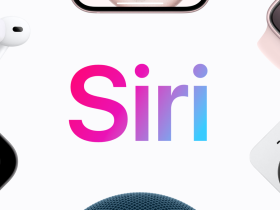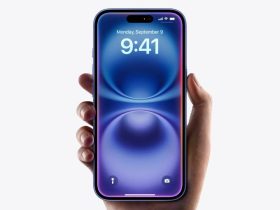“What do you think of AI?” It’s the open-ended, million-dollar question that everyone wants to ask me at the pub when they discover I’m a technology journalist. It’s also the one question that instantly kills my buzz. I can be two-and-a-half spicy margaritas deep on an empty stomach, but if someone brings up ChatGPT, or Elon Musk, it’s like an instant cold shower.
It’s not that I don’t care about developments in AI, or that I don’t have many varied and nuanced opinions on the tech. On the contrary, I’m fascinated by the possibilities of agentic AI, and I worry frequently about the lack of responsible AI development. But every now and then my brain needs a break from thinking about it. The AI industry cranks out a relentless barrage of new tools, new features, new noise. My inbox is overflowing with AI vaporware announcements, and I spend my days trying to ensure we’re communicating about AI in a way that’s honest and that’s meaningful to our readers.
I know I’m not alone in experiencing AI fatigue. The messaging is everywhere, from Super Bowl ads to news coverage to billboards to pop culture. On top of that, AI-generated content is increasingly doing the selling. Every tech company, including Apple, Google, Meta, Nvidia, OpenAI, Samsung and others, is competing loudly and publicly to dominate this emerging field — and that’s before you even get to the new crop of AI startups. It can be hard to sort the fluff from the substance.
We’re also constantly being told we should want AI in our devices, especially our phones, but the truth is that many people simply don’t. AI apps such as ChatGPT and DeepSeek are enormously popular, indicating the public’s curiosity, but that doesn’t mean people are willing to pay a premium for one, never mind multiple AI services.
In a survey CNET published last September, 45% of respondents told us they weren’t interested in paying a subscription fee for AI features, and 25% said they didn’t find AI features helpful at all. The top three things that people said would induce them to upgrade their phone were battery life, storage and an improved camera. Only 18% said AI would be a reason to upgrade.
Some phone makers — including Apple, which uses Apple Intelligence to sell the iPhone 16 series — are leaning so heavily on AI to be their key differentiating factor and the reason to upgrade that it doesn’t just now define their devices but also their entire brand. At the same time, their messaging can make it hard to know what they actually stand for and what they’re trying to achieve.
Watch this: Apple Delaying Siri’s Intelligence Isn’t a Failure. The Problem Is Bigger Than Apple
As part of Honor’s Mobile World Congress keynote presentation in March, during which the company announced a massive investment in AI, Honor showed an AI-generated video of its vision of the future that seemed almost dystopian given its lack of warmth and humanity. Honor is far from alone in talking expansively and nonspecifically about AI in a way that leaves me wondering what the end goal is. This “throw AI at the wall and hope it sticks” approach is a widespread problem among tech companies — one that was highlighted by brand strategist Eugene Healey, who in a TikTok video broke down the generic nature of most AI messaging (while rightly pointing out that most AI logos look like buttholes).
“There’s a barrenness to the world of AI marketing because no one wants to say definitively that they actually do anything,” Healey says in the video. “Your brand needs to be more than an empty vessel — there is power in being known for something specific, especially when the rest of your industry is so wishy-washy.”
There’s a small handful of savvy tech companies that get this, to the point that they’re not really talking about AI in their marketing at all. Carl Pei, CEO of phone-maker Nothing, has mulled banning the use of the term “AI” in the company, co-founder Akis Evangelides told me in an interview at MWC. “I would like to ban it too,” he added. “I think there’s a lot of confusion out there.”
As a relatively new player in the overcrowded smartphone market, UK-based Nothing has set itself apart from rivals through branding that taps into trends far beyond the tech world. It’s not that the company isn’t investing in AI — it very much is — but it’s avoiding falling into the trap of using AI to unnecessarily rebrand itself or introduce gimmicky features that people don’t understand the point of.
In this respect, Nothing seems to have grasped an essential truth that other tech brands are struggling to come to terms with: AI is basically deeply unsexy. It’s not a turn-on for people when they see it in product marketing — if anything, it can have quite the opposite effect.
‘AI washing’ — a turnoff for the masses
In a study published by Washington State University last June, researchers said they discovered that the inclusion of the term “artificial intelligence” in descriptions of products and services “decreases purchase intention” among consumers.
A significant factor in this is “AI washing,” where companies exaggerate the AI capabilities of their products, one of the study’s authors told me. “Even if a product has only minor intelligent functionalities, companies often claim it is AI-driven, causing consumer skepticism about the authenticity of such claims,” Washington State Scholarly Associate Professor Mesut Cicek said in an email.
The way AI is marketed as a utopian, universally good and helpful asset can also seem wildly out of touch with how people actually feel about the technology. There’s widespread fear and distrust around AI, Cicek said, with people concerned about how it will impact employment and society, as well as how it could potentially be used to exploit their data. This affects the extent to which people are willing to buy into it.
It’s not as though all people working at tech companies are blind to how society is receiving AI, but there isn’t always internal alignment on how to handle it. People I’ve spoken with who work at some of the biggest companies at the forefront of pushing AI have told me they recognize how relentless and overwhelming the messaging can be. How to translate AI into something that is comprehensible and palatable to people is still a work in progress across the board.
When it comes to AI, less could be more. It would also help, said Cicek, if companies could “transparently communicate detailed information about their products or services.” They need to be specific, clearly outlining the AI features, potential issues and their strategies for addressing those issues, he said.
AI hype has dominated our lives for the past few years now, and though AI isn’t going away, it would be nice to think that there will be some relief from the endless slew of information that has us swinging between optimism and doom. AI poses genuine challenges for society that none of us can readily afford to ignore. But in order to engage with those debates critically, I’ll be making sure I take moments away from AI when I can grab them — so if I shut down your AI questions at the pub, please don’t take it personally.












Leave a Reply